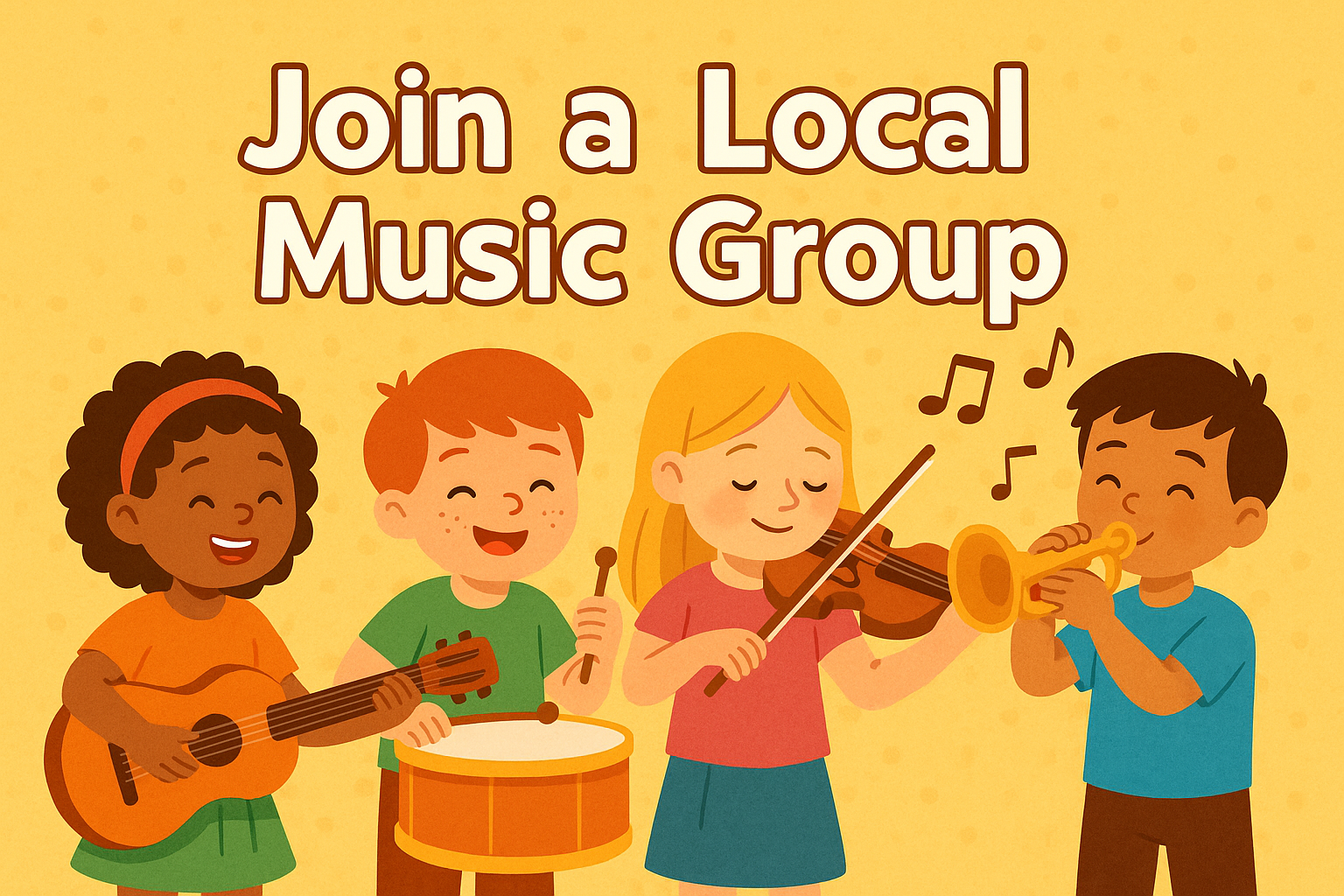Joining a music group helps children grow their musical abilities while experiencing the joy of playing together.
Whether it’s a beginner string ensemble, youth orchestra, drumming circle, or brass band, local music groups are a brilliant next step for young instrumentalists.
Sessions usually involve warm-ups, learning pieces together, and sometimes working towards performances or community events. Children develop musicality, discipline and teamwork — all while having fun with others who share their interests.
Why It’s Great
- Musical Growth – Reinforces rhythm, timing, and listening skills through real-world practice.
- Teamwork & Collaboration – Teaches how to follow a conductor, blend with others, and support a shared goal.
- Confidence & Belonging – Builds self-esteem and pride through participation and progress.
- Inspiration & Joy – Being part of a group performance can be exciting and deeply rewarding.
How to Get Started
- Ask at your child’s school, local music hub, or community centre about beginner-friendly music groups.
- Groups often welcome children with a few months of experience on an instrument — even basic knowledge is enough.
- Look for inclusive groups that offer a gentle pace and plenty of encouragement.
- Check whether instruments are needed or available to borrow for rehearsals.
Variations
- School-Based Groups: Many schools run lunchtime or after-school ensembles and choirs.
- Genre-Based Groups: Options may include jazz bands, folk groups, rock bands, or percussion circles.
- Holiday Clubs: Some music hubs run short-term holiday programmes for children to try playing in a group.
Safety Tips
- Ensure group leaders are DBS-checked and the space is safe and age-appropriate.
- Children should never feel pressured to perform or compete — joy and progress are what matter most.
- Encourage regular breaks and posture-friendly instrument use to prevent fatigue or discomfort.


Leave a Reply